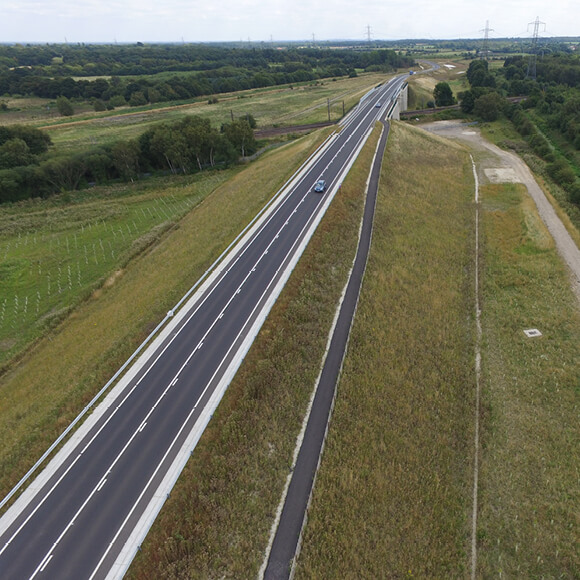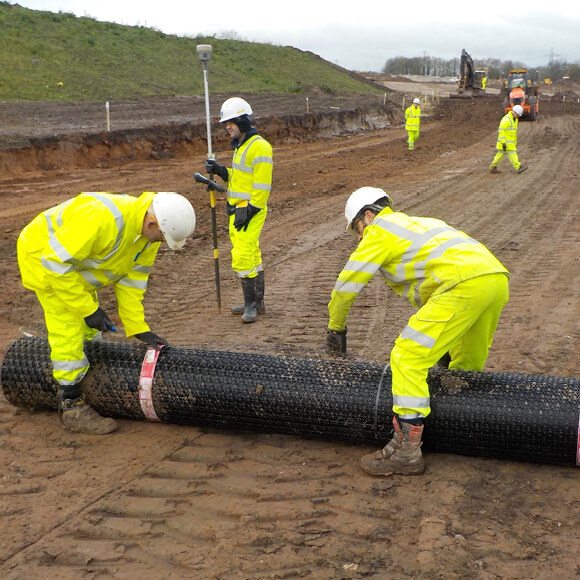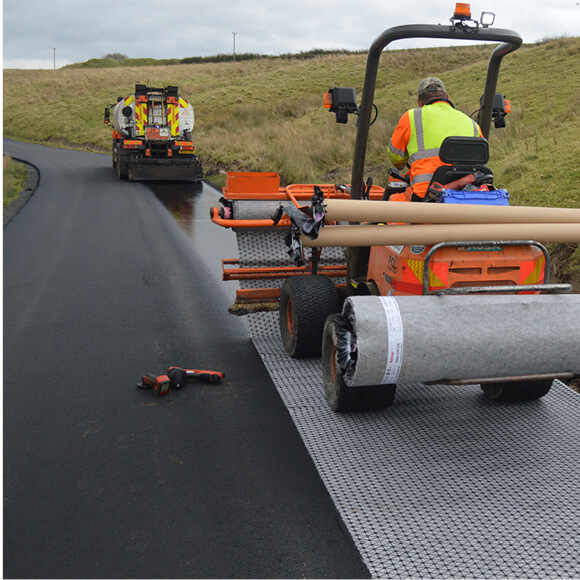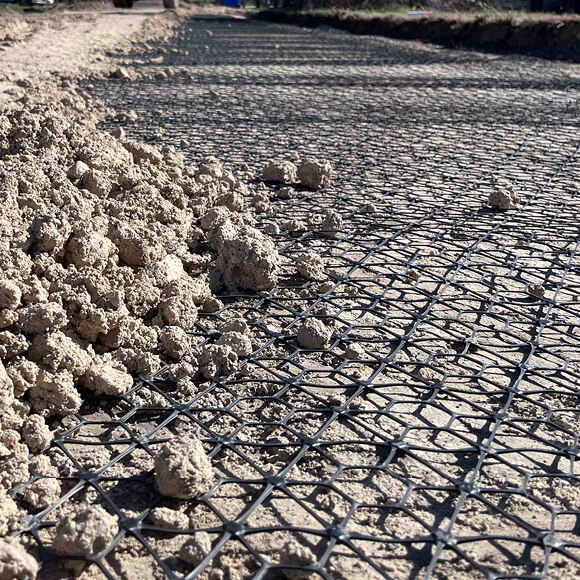
Flexible Pavements
What is a flexible pavement?
Flexible pavements reflect any deformation of the subgrade. They are typically surfaced with bituminous material, overlying one or more layers of unbound granular material on a prepared subgrade. The pavement layers distribute tyre loads onto a wider area at the subgrade surface, to protect it from deformation. Rutting in the roads is reflected in the road surface affecting ride quality, safety, and pavement life.
The bituminous layer also provides a smooth, safe, durable road surface for the benefit of users and it prevents ingress of water from the surface, which would lead to weakening of the subgrade and a reduction in pavement life.
For further information on enhancing pavement stability and longevity with geogrid solutions, explore Tensar's offerings such as Interax Geogrids, Tensar HX Geogrid, and Triax TX Geogrid.

Improving the Performance of Flexible Pavement with Tensar Geogrid
By incorporating one or more layers of Tensar geogrid into the unbound layers of a flexible pavement, the design life can be increased. Alternatively, a reduction in thickness can be made for a given design life, thereby reducing the whole-life cost of the pavement.

Stabilisation over weak subgrade soils
Construction over weak or variable soils can result in serious problems. Access can be difficult and the placement and compaction of the initial layers of subbase or capping that form a pavement foundation can be challenging. Incorporating a Tensar stabilisation geogrid at the subgrade surface simplifies placement and compaction. The thickness of the foundation layers can be reduced by up to 50% due to the improved bearing capacity of the mechanically stabilised layer.

Control cracking to extend life of the surfacing
Bitumen-bound materials are susceptible to cracking due to fatigue or in the case of an overlay, from the upward reflection of pre-existing cracks in the substrate. The onset and propagation of cracks can be delayed by the incorporation of a Tensar asphalt interlayer prior to overlay – increasing the life of the surfacing layers.







.png)